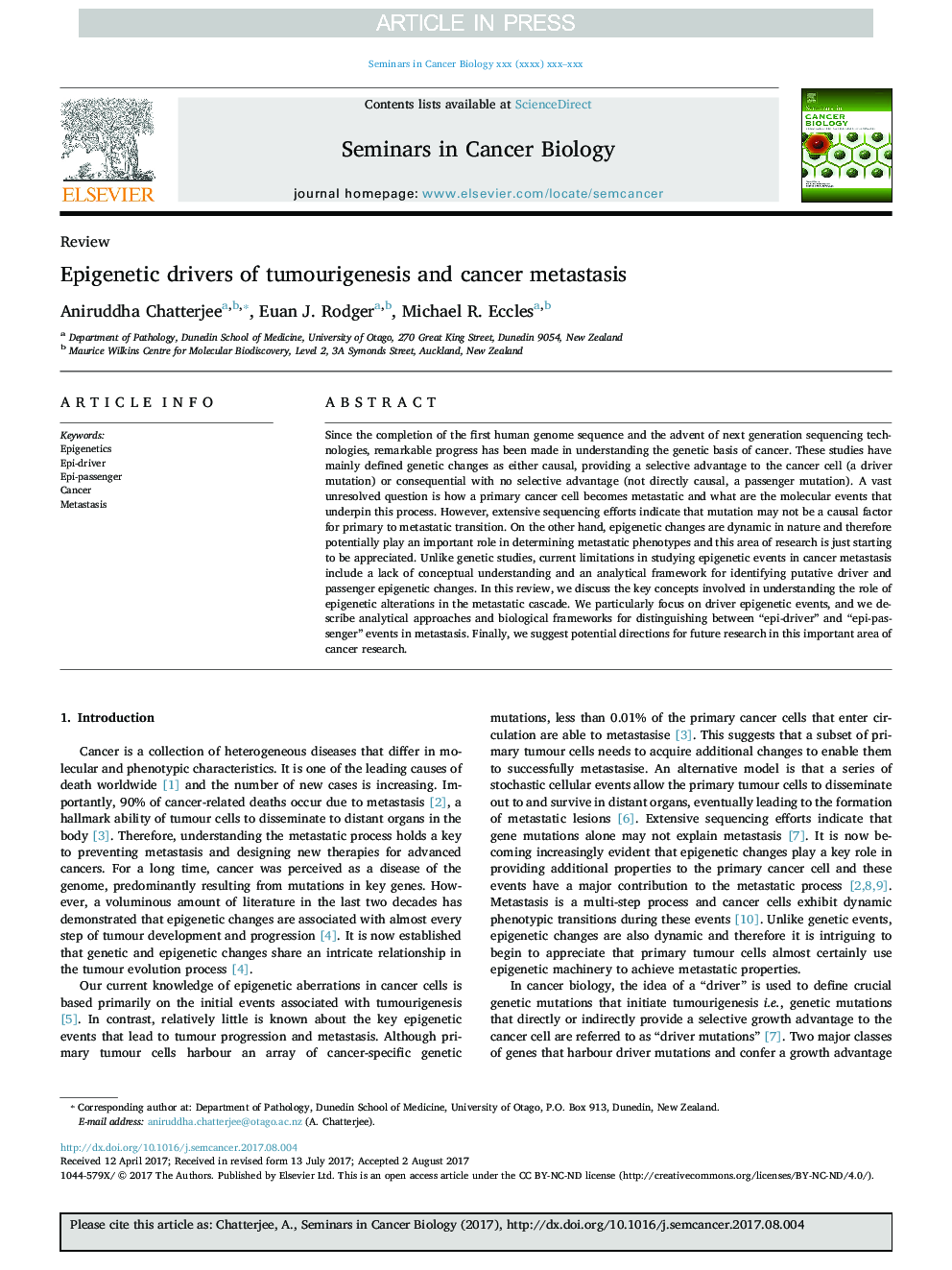| Article ID | Journal | Published Year | Pages | File Type |
|---|---|---|---|---|
| 8361747 | Seminars in Cancer Biology | 2018 | 11 Pages |
Abstract
Since the completion of the first human genome sequence and the advent of next generation sequencing technologies, remarkable progress has been made in understanding the genetic basis of cancer. These studies have mainly defined genetic changes as either causal, providing a selective advantage to the cancer cell (a driver mutation) or consequential with no selective advantage (not directly causal, a passenger mutation). A vast unresolved question is how a primary cancer cell becomes metastatic and what are the molecular events that underpin this process. However, extensive sequencing efforts indicate that mutation may not be a causal factor for primary to metastatic transition. On the other hand, epigenetic changes are dynamic in nature and therefore potentially play an important role in determining metastatic phenotypes and this area of research is just starting to be appreciated. Unlike genetic studies, current limitations in studying epigenetic events in cancer metastasis include a lack of conceptual understanding and an analytical framework for identifying putative driver and passenger epigenetic changes. In this review, we discuss the key concepts involved in understanding the role of epigenetic alterations in the metastatic cascade. We particularly focus on driver epigenetic events, and we describe analytical approaches and biological frameworks for distinguishing between “epi-driver” and “epi-passenger” events in metastasis. Finally, we suggest potential directions for future research in this important area of cancer research.
Keywords
Related Topics
Life Sciences
Biochemistry, Genetics and Molecular Biology
Biochemistry
Authors
Aniruddha Chatterjee, Euan J. Rodger, Michael R. Eccles,
